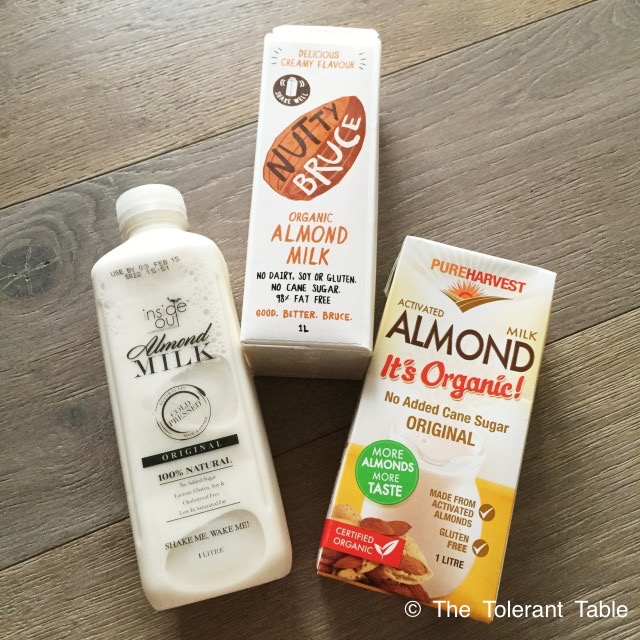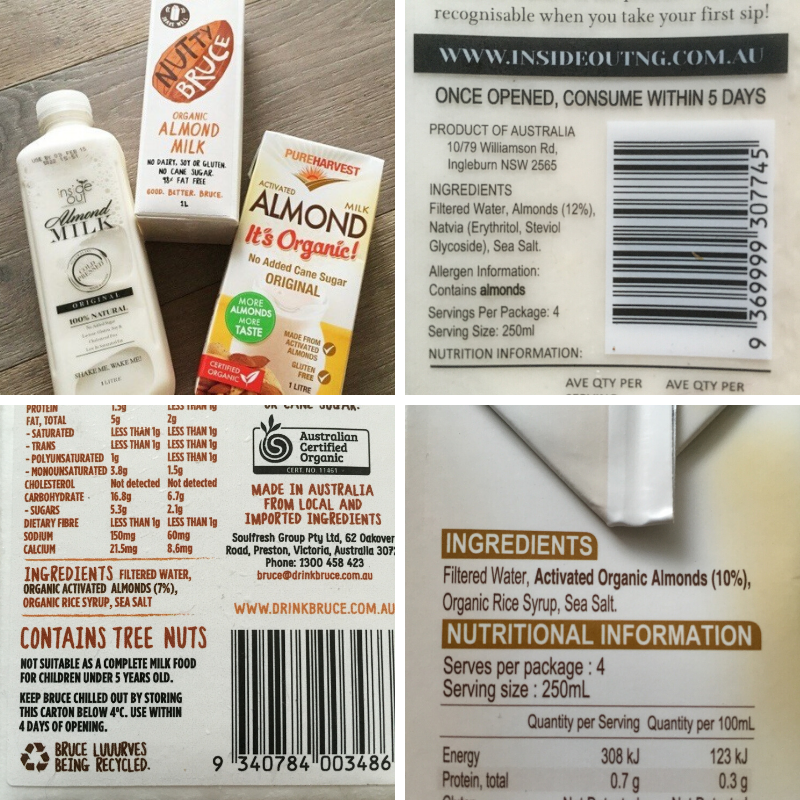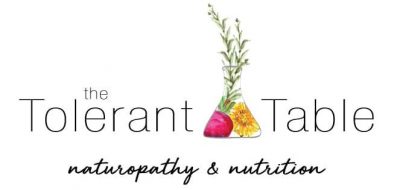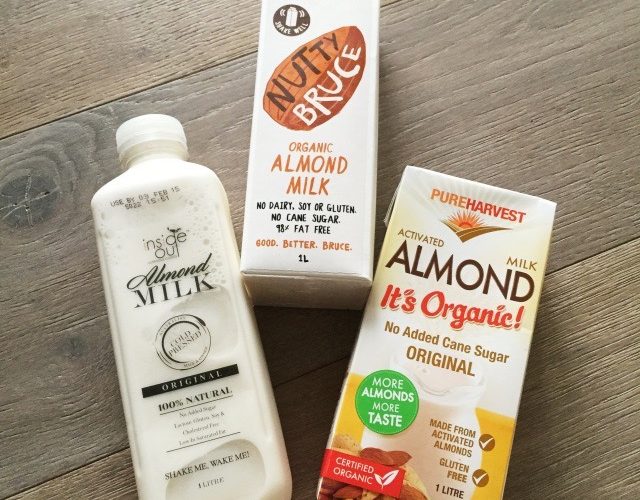Almond milk seemed to appear on supermarket shelves overnight, didn’t it? And not just one or two brands for us to choose from either, the market was literally flooded. I’m still trying to pinpoint the article someone wrote or the event that occurred to set the avalanche off.
Don’t get me wrong, I couldn’t be happier about alternative milks like almond and coconut milks hitting the ‘mainstream’. However, as with all commercial endeavours, profit is one of the main drivers where most companies are concerned. You want almond milk we’ve got almond milk! In a rush to get the next fad product out some have arrived with a stack of unfavourable ingredients. Many of which lend themselves more to preserving shelf life than promoting health so reading labels is a must.
I regularly make almond milk and other nut milks at home and can assure you all you need are almonds, water, a pinch of salt and maybe a sweetener like dates, honey, maple syrup, rice malt syrup or stevia if you feel like it. That’s it. Three to four ingredients is all it takes.
Which almond milks to buy
Of the now numerous almond milks (that I know of) there are only three I have come across that contain these very basic ingredients. They are Inside Out Nutritious Goods, Pureharvest Organic and Nutty Bruce Plant Milks.

Many of the other brands now on offer contain ingredients like:
- Carrageenan (a seaweed that can cause gut issues and/or intestinal inflammation in some people)
- Maltodextrin (basically sugar, mostly made from either wheat or corn. This of course means it’s not always gluten-free and they may not list which one has been used)
- Agave syrup (much debate about this one as study results are unclear. Some health experts say it’s a healthy sweetener. Others say its up there with high fructose corn syrup – my thoughts align with the second camp)
- Vitamin A Palmitate – (often derived from palm oil, which is damaging to the environment)
- Various gums (I tend to think most of these should be avoided by those with digestive issues. They can aggravate sensitive guts and some such as xanthan gum may cause allergic reactions in those with dairy, soy, wheat or corn allergies)
- Lecithin (some don’t say whether its soy or sunflower so may be an issue for those with soy allergies)
- Natural almond flavours (why does almond milk need almond flavours??!)
That is a very big list of extra things! Especially when we’ve already established you only need a handful of ingredients, no? To make matters worse some of them have all of these ingredients, not just a few. So, consider your research done. If these almond milks are not available where you live, just make sure you read the ingredients of those that are.

Where can you buy them?
So after all that, where can you find these almond milks*? Most major supermarkets and/or health food stores stock them but best to check websites for stockists in your area.
* A little note: Some of my three preferred companies sell a number of products. Whilst I’m sure they’re all pure and delicious, I haven’t seen them all nor reviewed their ingredients. As a result, please note my support at this point is solely for the plain almond milks.


I am so pleased to read that one of my favourite brands, Pure Harvest, gets the tick of approval from my trusted friend! Still yet to make almond milk myself. Sigh. Where does the time go?
Pureharvest is a fabulous choice. I also love their CocoQuench and there are a couple of cafes in Sydney that stock that instead of almond milk… that makes me happy too!
I’m a 45 year old male.I had an allergic reaction for the first time ever after drinking Inside Out brand.I’m generally not allergic to any food ,no nut allergy at all and have drank other brands of almond milk and whole milks in the past.My reaction was within a half hour of drinking it.I was not even sure what caused the allergy at all.So a week later after antihistamine tablets I tried it again to test and bingo another allergy.What could be an engredient in Inside Out that may cause this reaction?
Hi John, that must have been super scary! At the time of writing this article, Inside Out were one of the ‘cleanest’ almond milk brands on the market. There was only almonds, water, sea salt and a sweetener. I’m wondering if perhaps there may have been cross contamination with something else at their plant? Have you had the opportunity to give them a call and ask for their feedback? I’d be really interested to hear what they had to say.
Hi Gabby,I have written to them and awaiting an answer.My guess it will be a dead end complaint that leads to no where.A food company will never admit liability unless there has been many complaints raised.
They certainly should do! Thank you for letting me know though, John. I will follow this up too. I would definitely like to know if there are any other ingredients that are possible irritants.
My GP said the slightest change to ingredient or type of ingredient e.g. type/variety of salt used in production can cause an allergy. GP said its never 100% full proof no matter what they put on their labels as being “natural” or additive free that its 100% without additive of some sort natural or not.
Very interesting to hear. I shall look forward to the company reply!
I think Pure Harvest Almond milk is by far the best, down to price and a greater percentage of Almonds used. It also has a long shelf life.
And this varieties with cleanest ingredients are never fortified with calcium. Wondering why.
Also wondering if a serve of these milks (i’m only interested in bruce and unsweetened pure harvest but fear to try) are low in fodmaps.
That’s true Ahmet. It’s an interesting question and one I’m sure many of those brands would be open to discussing. A diet rich in wholefoods would absolutely help you meet your daily calcium needs though – even without fortified plant milks. Take a look at this great list from the National Osteoporosis Foundation. Keep in mind that most adults need roughly 1000mg of calcium per day (unless they have a specific health condition and then the amount should be confirmed with a GP) https://www.nof.org/patients/treatment/calciumvitamin-d/a-guide-to-calcium-rich-foods/
As to almond milk on a fodmap diet – Monash University state that 1 cup (250ml) of almond milk should be safe to consume for those who are sensitive to fodmaps. In my experience, this can be different for everyone so I would start with 1/4 of a cup (about 60ml) and work your way up from there.
Thanks so much for your answer. I believe it’s not a coincidence. When they fortify the plant milk it probably raises the need to use of this or that stabiliser and such. I asked one of them. I got no response.
I have autoimmune problems. All calcium sources tend to upset me or whenever something comes close to be the answer, it interferes with something else. There are good dairy substitutes, for instance, made of soy protein that has high protein, low sugar, has vitamin bs&d and calcium (when you look at it from the perspective of nutrition, it also becomes obvious how pointless actually almond milk is). Soy interferes with thyroid function in such a bad way. So, soy milk and calcium containing tofu are of the table. I sure am -these are all interconnected of course, thyroid (hashimoto’s), gluten, casein, lactose many other food sensitivities incl fodmaps and nightshades, leaky gut, even just a simple, lean piece of red meat- reacting to casein (doesn’t matter much if a1 or only a2 or lactose or lactose free). So dairy is out. Always reacting to high sugar content, for some reason, so rice milk is out ( there are good options there too), orange is out. And there’s only so much you can do with fish bones and kale in order to meet your rdi. You might only wanna believe this dissenting opinion suggesting, far as calcium is concerned, rdi is not right, you can do well, or even be better of with much less calcium.(?)
And I have reason to believe supplements are not absorbed btw, even calcium citrate( have the feeling that they are more or less rubbish anyway).
So therefore I’ve decided to try almond milk (almond is a no actually for someone who has autoimmune thyroid problem), and would have continued to consume in small quantities but then, they’re never available in 250 ml cartons. Refrigeration may be upsetting me more, either histamines or simply cold irritating (ibs), don’t know the exact reason.
It’s a dead end, you see. This calcium.
Thank you
You certainly have a lot going on there Ahmet, and I’m hoping you’re finding some answers to your health puzzles with your Immunologist.
You’re quite right about absorption of nutrients being difficult with gut health issues however, this should start to resolve as gut health improves. Soy may need to be avoided by those with thyroid problems (as can many other goitrogenic foods) but in my experience this is a very individual thing. We all respond to foods and medications so differently.
I’m not really sure where your thoughts on supplements have come from but they are most certainly absorbed. The form of nutrient used in each supplement along with the excipients it contains can influence bioavailability, which is why purchasing good quality supplements and not those off supermarket shelves is important. Absorption can also be influenced by whether you’ve taken supplements with food or on an empty stomach. As I mentioned too, for some, the health of your gut will also play a role in whether nutrients are well absorbed or not. Hope that helps.
I have been using Pure Harvest Almond Quench for my breakfast smoothies for years. The reason I chose this particular brand is because its organic and contains only simple basic ingredients without any additives and flavour enhancer. I do not like any coorageenan in my smoothy. So glad that you share the same opinion.
I am just wondering whether the coconut in it could be the cause of my elevated cholesterol.
Yes that’s why I like PureHarvest too June. As to the cholesterol – there are so many reasons it can become elevated but if you’re having a lot of coconut milk it is worth chatting to your primary health care provider about it.